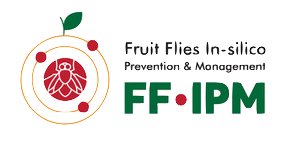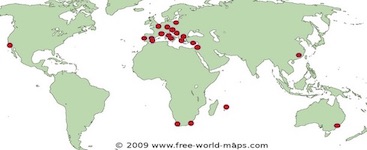
H2020 (2019-2023)


FF-IPM”: In-silico boosted pest prevention and off-season focused IPM against new and emerging fruit flies ('OFF-Season' FF-IPM)
.FF-IPM is a project funded by the EU under H2020 (GA 818184 https://cordis.europa.eu/project/rcn/223226/factsheet/en).It is coordinated by the University of Thessaly (Volos, Greece). The project consortium consists of 21 partners. Budget: 6 million euros. Project webpage: https://fruitflies-ipm.eu
Our role: InSilco-IPM is a formal partner of the FF-IPM consortium, responsible for stochastic simulation of the on-farm behaviour of individual flies and their development in complex agro-landscapes, and for application of its proprietary PESTonFARM software for development of a new “OFF-Season” paradigm for management of fruit flies in multi-host mosaic agro-landscapes. InSilco-IPM is the Leader of the work package: "Enhancement of methods & strategies for OFF- & ON-Season FF management", and Member of the Project Steering Committee, Executive Board, and the Innovation and Exploitation Committee.
Our role: InSilco-IPM is a formal partner of the FF-IPM consortium, responsible for stochastic simulation of the on-farm behaviour of individual flies and their development in complex agro-landscapes, and for application of its proprietary PESTonFARM software for development of a new “OFF-Season” paradigm for management of fruit flies in multi-host mosaic agro-landscapes. InSilco-IPM is the Leader of the work package: "Enhancement of methods & strategies for OFF- & ON-Season FF management", and Member of the Project Steering Committee, Executive Board, and the Innovation and Exploitation Committee.


